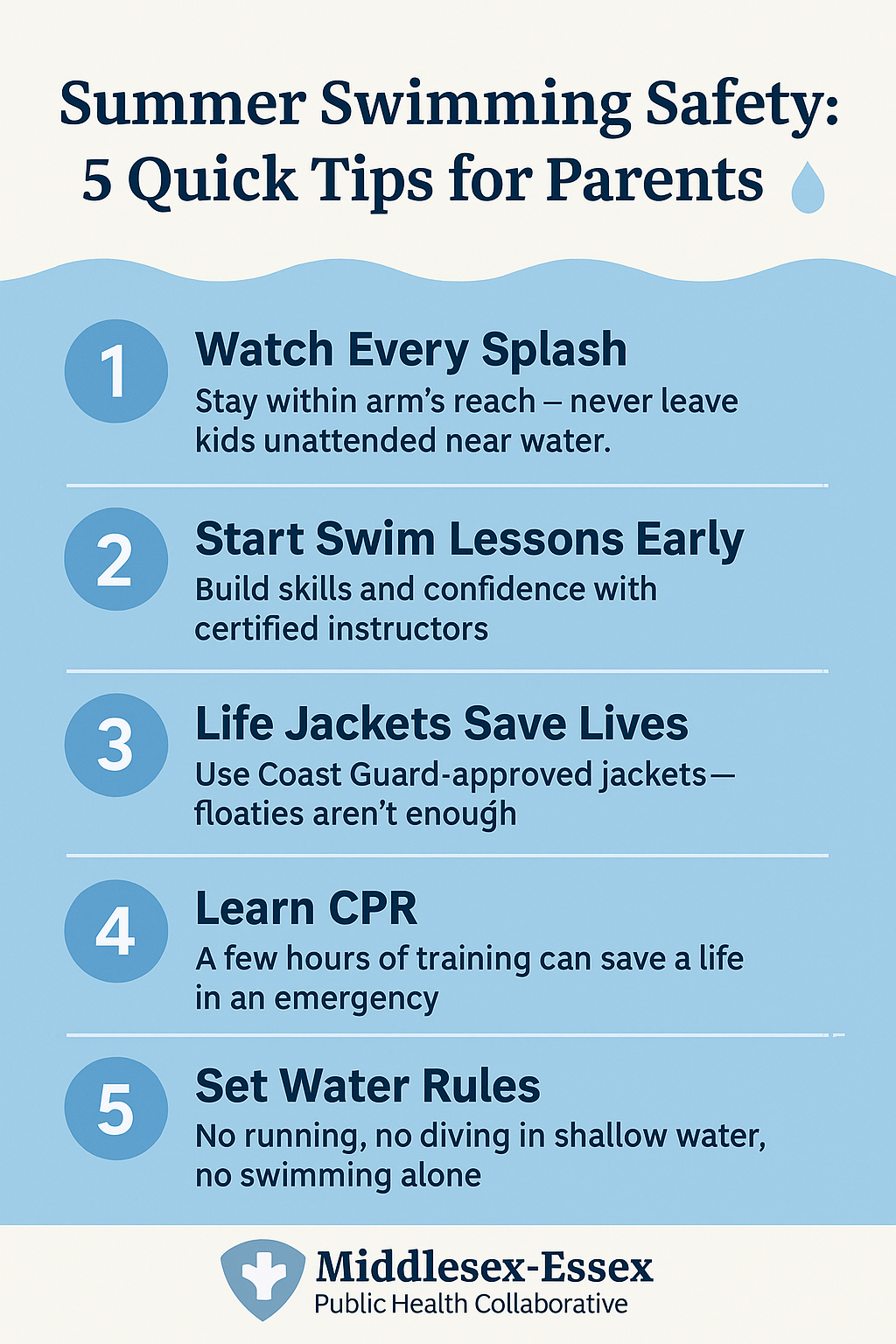Summer Swimming Safety
July 1, 2025
A Parent’s Guide to a Safe and Fun Season
Swimming is a quintessential summer activity—fun, refreshing, and great for family bonding. But as joyful as it is, water safety requires constant attention. Drowning is fast and silent, and young children are especially at risk. Whether you’re headed to the pool, lake, or beach, taking a few key precautions can prevent tragedy and help everyone enjoy the water with confidence.
This guide combines practical tips from the Massachusetts Department of Public Health and other trusted sources to help parents keep their children safe all summer long.

6 Essential Water Safety Tips for Families
1. Actively Supervise at All Times
Always stay within arm’s reach of young children and never leave them unattended near water. Distractions—even quick ones like checking your phone or chatting—can lead to serious consequences. Even strong swimmers benefit from watchful eyes.
2. Teach Swimming Skills Early
Enroll your child in swimming lessons that focus on basic strokes, water safety, and survival skills. This builds confidence and can prevent panic in the water. Look for programs through your local YMCA, Red Cross, or parks and recreation department.
3. Use Coast Guard-Approved Life Jackets
If your child is not a strong swimmer—or you’re in open water, on a boat, or at a beach—life jackets are a must. Choose ones that are U.S. Coast Guard-approved and properly fitted for your child’s size and weight. Floaties and inflatable toys are not substitutes for life jackets.
4. Learn CPR
In emergencies, bystanders are often the first responders. Knowing CPR could mean the difference between life and death. Organizations like the American Red Cross and local health departments offer CPR training year-round—often in just a few hours.
Find CPR classes near you:
5. Follow Pool and Water Rules
Establish simple family rules such as:
- No running on wet surfaces
- No diving in shallow areas
- No swimming alone
- Always ask an adult before entering water
These rules help set expectations and reduce risky behaviors.
6. Check Conditions Before Swimming
Especially in lakes, rivers, or oceans—pay attention to posted warnings about water quality, weather, tides, and currents. Avoid swimming during thunderstorms or high winds, and never drink untreated natural water, which can carry bacteria or parasites.
Trusted Resources
Final Thought: Safety Makes Fun Possible
Water play is one of the best parts of summer—but staying safe takes vigilance and preparation. By following these tips and knowing where to find reliable resources, you can help ensure your children enjoy every splash this season—safely.
